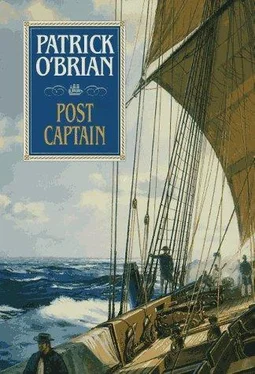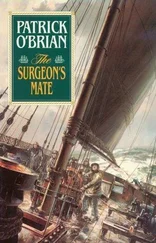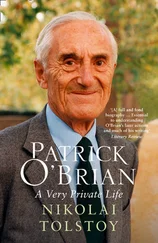Patrick O'Brian - Post captain
Здесь есть возможность читать онлайн «Patrick O'Brian - Post captain» весь текст электронной книги совершенно бесплатно (целиком полную версию без сокращений). В некоторых случаях можно слушать аудио, скачать через торрент в формате fb2 и присутствует краткое содержание. Жанр: Книги. Описание произведения, (предисловие) а так же отзывы посетителей доступны на портале библиотеки ЛибКат.
- Название:Post captain
- Автор:
- Жанр:
- Год:неизвестен
- ISBN:нет данных
- Рейтинг книги:5 / 5. Голосов: 1
-
Избранное:Добавить в избранное
- Отзывы:
-
Ваша оценка:
- 100
- 1
- 2
- 3
- 4
- 5
Post captain: краткое содержание, описание и аннотация
Предлагаем к чтению аннотацию, описание, краткое содержание или предисловие (зависит от того, что написал сам автор книги «Post captain»). Если вы не нашли необходимую информацию о книге — напишите в комментариях, мы постараемся отыскать её.
Post captain — читать онлайн бесплатно полную книгу (весь текст) целиком
Ниже представлен текст книги, разбитый по страницам. Система сохранения места последней прочитанной страницы, позволяет с удобством читать онлайн бесплатно книгу «Post captain», без необходимости каждый раз заново искать на чём Вы остановились. Поставьте закладку, и сможете в любой момент перейти на страницу, на которой закончили чтение.
Интервал:
Закладка:
‘If I had not thrown away my hearts,’ said Jack, ‘I should have had you on toast. What amazing cards you have held these last few weeks, Stephen.’
‘Skill enters into this game.’
‘It is luck, all luck! You have the most amazing luck with cards. I should be sorry, was you in love with anyone.’
The pause lasted no more than a second before the door opened and the horses were reported alongside, but its effect hung about them for miles as they trotted through the cold drizzle along the London road.
However, the rain stopped while they were eating their dinner at the Bleeding Heart, their half-way point, a cheerful sun came out, and they saw the first swallow of the year, a blue curve skimming over the horse-pond at Edenbridge. Long before they walked into Thacker’s, the naval coffeehouse, they were far back in their old easy ways, talking without the least constraint about the sea, the service, the possibility of migrant birds navigating by the stars at night, of an Italian violin that Jack was tempted to buy, and of the renewal of teeth in elephants.
‘Aubrey, so it is!’ cried Captain Fowler, rising from his shadowy box in the far end of the room. ‘We were just talking about you. Andrews was here until five minutes ago, telling us about your ball in the country - in Sussex. He said it was the finest thing - girls by the dozen, fine women, such a ball! He told us all about it. Pray,’ he said, looking arch, ‘are we to congratulate you?’
‘Not - not exactly, sir, thank you very much however. Perhaps a little later, if all goes well.’
‘Clap on, clap on! Else you will regret it when you are old - damnably mouldy a hundred years hence. Am not I right, Doctor? How do you do? Am I not right? If only he will clap on, we may see him a grandfather yet. My grandson has six teeth! Six teeth in his head already!’
‘I shall not spend long with Jackson, I just want a little ready money - you have stripped me with your infernal run of luck - and the latest news from the prize-court,’ said Jack, referring to his prize-agent and man of business. ‘And then I shall go to Bond Street. It is a prodigious sum to pay for a fiddle, and I do not think I could square it with my conscience. I am not really a good enough player. But I should just like to handle it again, and tuck it under my chin.’
‘A good fiddle would bring you into bloom, and you earned an Amati by every minute you spent on the deck of the Cacafuego. Certainly you must have your fiddle. Any innocent pleasure is a real good: there are not so many of them.’
‘Must I? I have a great respect for your judgment, Stephen. If you are not long at the Admiralty, perhaps you would step round and give me your opinion of its tone.’
Stephen walked into the Admiralty, gave his name to the porter, and was shown straight past the notorious waiting-room, where an anxious, disconsolate and often shabby crowd of shipless officers were waiting for an interview, an almost certainly hopeless interview.
He was received by an elderly man in a black coat -received with marked consideration and begged to take a seat. Sir Joseph would be with them as soon as the Board rose; they had been sitting an hour longer than had been expected; and in the mean time Black Coat would be happy to deal with certain main heads. They had received Bartolomeu’s report.
‘Before we begin, sir,’ said Stephen, ‘may I suggest that I should use another entrance or that our meetings should take place in another house? There was a fellow lounging
about by the hazard on the other side of Whitehall whom I have seen in the company of Spaniards from the embassy.
I may be mistaken; it may be mere chance; but -
‘Sir Joseph hurried in. ‘Dr Maturin, I do apologize for keeping you. Nothing but the Board would have prevented me from. . . How do you do, sir? It is most exceedingly good of you to come up at such short notice. We have received Bartolomeu’s report, and we urgently wish to consult you upon several points that arise. May we go through it, head by head? His lordship particularly desired me to let him have the results of our conversation by tonight.’
The British government was well aware that Catalonia, the Spanish province or rather collection of provinces that contained most of the wealth and the industry of the kingdom, was animated by a desire to regain its independence; the government knew that the peace might not last -Bonaparte was building ships as fast as he could - and that a divided Spain would greatly weaken any coalition he might bring into an eventual war. The various groups of Catalan autonomists who had approached the government had made this plain, though it was obvious before: this was not the first time England had been concerned with Catalonia nor with dividing her potential enemies. The Admiralty, of course, was interested in the Catalan ports, shipyards, docks, naval supplies and industries; Barcelona itself would be of incalculable value, and there were many other harbours, including Port Mahon in Minorca, the British possession, so strangely given up by the politicians when they negotiated the recent peace-treaty. The Admiralty, following the English tradition of independent intelligence agencies with little or no communication between them, had their own people dealing with this question. But few of them could speak the language, few knew much about the history of the nation, and none could evaluate the claims of the different bodies that put themselves forward as the true representatives of the country’s resistance. There were some Barcelona merchants, and a few from Valencia; but they were limited men, and the long war had kept them out of touch with their friends; Dr Maturin was the Admiralty’s most esteemed adviser. He was known to have had revolutionary contacts in his younger days, but his integrity, his complete disinterestedness were never called into question. The Admiralty also had a touching respect for scientific eminence, and no less a person than the Physician of the Fleet vouched for Stephen Maturin’s. ‘Dr Maturin’s Tar-Water Reconsidered and his remarks on suprapubic cystotomy should be in every naval surgeon’s chest: such acuity of practical observation…’ Whitehall had a higher opinion of him than Champflower:
Whitehall knew that he was a physician, no mere surgeon; that he was a man of some estate in Lérida; and that his Irish father had been connected with the first families of that kingdom. Black Coat and his colleagues also knew that in his character as a physician, a learned man of standing perfectly at home in both Catalan and Spanish, he could move about the country as freely as any native - an incomparable agent, sure, discreet, deeply covered: a man of their own kind. And from their point of view his remaining tinge of Catholicism was but one advantage more. They would have wrung and squeezed their secret funds to retain him, and he would take nothing: the most delicate sounding produced no hint of an echo, no gleam in his purse’s eye.
He left the Admiralty by a side door, walked through the park and up across Piccadilly to Bond Street, where he found Jack still undecided. ‘I tell you what it is, Stephen,’ he said. ‘I do not know that I really like its tone. Listen-’
‘If the day were a little warmer, air,’ said the shopman, ‘it would bring out its fruitiness. You should have heard Mr Galignani playing it when we still had the fire going, last week.’
‘Well, I don’t know,’ said Jack. ‘I think I shall leave it for today. Just put up these strings in a paper for me, will you, together with the rosin. Keep the fiddle, and I will let you know one way or the other by the end of the week. Stephen,’ he said, taking his friend’s arm and guiding him across the busy street, ‘I must have been playing that fiddle a good hour and more, and I still don’t know my own mind. Jackson was not in the way, nor his partner, so I came straight here. It was odd, damned vexing and odd, for we had appointed to meet. But he was not at home: just this fool of a clerk, who said he was out of town - they expected him, but could not tell when. I shall pay my respects to Old Jarvie, just to keep myself in mind, and then we can go home. I shall not wait for Jackson.’
Читать дальшеИнтервал:
Закладка:
Похожие книги на «Post captain»
Представляем Вашему вниманию похожие книги на «Post captain» списком для выбора. Мы отобрали схожую по названию и смыслу литературу в надежде предоставить читателям больше вариантов отыскать новые, интересные, ещё непрочитанные произведения.
Обсуждение, отзывы о книге «Post captain» и просто собственные мнения читателей. Оставьте ваши комментарии, напишите, что Вы думаете о произведении, его смысле или главных героях. Укажите что конкретно понравилось, а что нет, и почему Вы так считаете.












